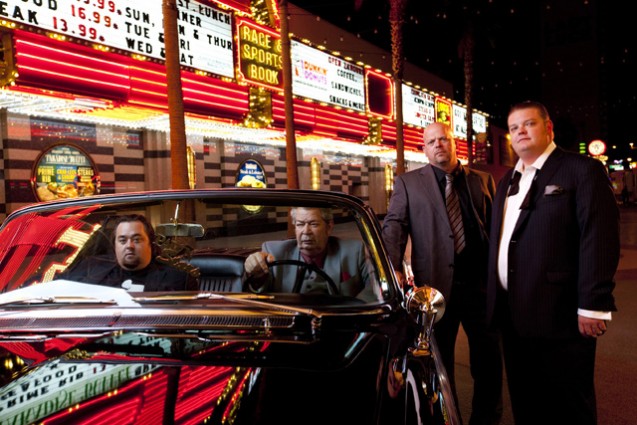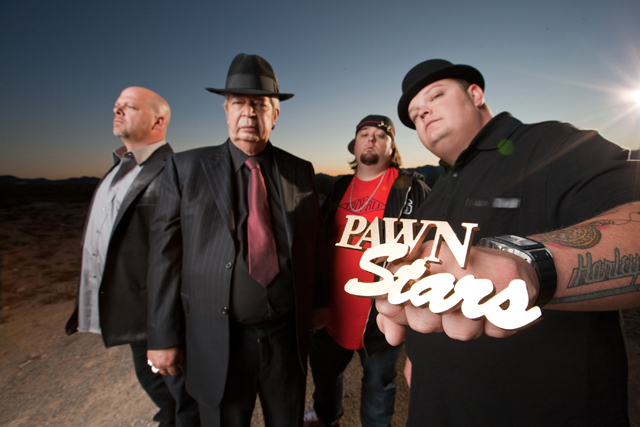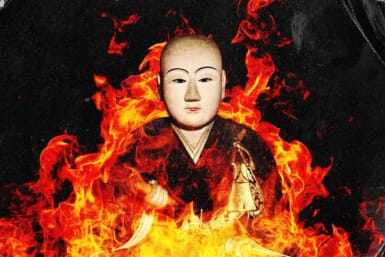What happens in Vegas, stays in Vegas, the saying goes, but, in the entertainment field at least, plenty is going on in the city that we are indeed hearing about.
by Asi Rinestine
There has been a surge of semi-educational “laugh & learn” style reality shows in recent times, and the star of the pack is History Channel-produced Pawn Stars, set within a glitzy pawn shop near the renowned Las Vegas Strip. The show, broadcast in more than 35 countries, has garnered record viewing figures for the channel and sits behind only Jersey Shore at the top of the reality show pile in the US.
The premise is simple, and the execution brings a diverse range of viewers in to a world many of them might have previously seen as a little murky.
The shop itself (open 24 hours a day) is popular with collectors looking to buy, sell or pawn their goods and get the best deals they can. We watch as they enter into some pretty hard – and entertaining – negotiations, but the real reason to tune in is the store’s owners and staff, a bunch of tough looking characters who conduct business in their own unique ‘Vegas style.’
“Everything is the same for me, only everything I have is nicer now”
That style can be loosely defined as a ‘cash is king’ mentality, with desperate sellers often needing money on the spot and in a hurry ($100 bills are most appreciated of course!) with the team always on the look out for fakes and reproductions – shop staff often need to deal with raging customers who find out a family heirloom or precious engagement ring is practically worthless.
Even though they look like a biker gang (some of them are devoted bikers), the team perhaps don’t live up to the meathead stereotype: they are highly knowledgeable about the intricacies and fine details of most pieces, which of course makes it possible for them to spot fakes and keep a tight eye on their pricing structures.
The team, supported by local experts – there are a couple of gun guys, an automobile restoration expert and various other recurring guests – share their knowledge with viewers.
Shop manager Rick Harrison and his son Corey “Big Hoss” Harrison flew in to Tokyo for a brief visit in August, to meet with fans, buy a couple of vintage bikes, and even talk to Tokyo Weekender.
Sin City goes west
As fans of the show for a few years now, we almost didn’t recognize Corey in his recently slimmed down form, sporting a beard. He says that personal success story was thanks to a strict diet, combined with gastric band surgery. But the beard? “He likes it because he doesn’t get recognized,” says Rick, though Corey adds that, “the History Channel is putting a lot of pressure on me to get rid of it.”
The success of the show has generated much interest in the shop, which around 5,000 people visit every day, including many international tourists, meaning the two are hard at work, currently producing two episodes per week.
“Since the show has become such a hit, we are getting so much stuff in our shop we honestly don’t know what to do with it all,” Rick says. And its not that people just want to see the stars or be on TV – most of them genuinely want to sell or pawn stuff for hard cash.
Pieces of jewelry are the main items being traded in at the shop, but they still get about 10 “weird” items a day (what price for some 200-year-old Japanese porn, or a bag full of human skulls, we wonder?) whilst dentists selling gold teeth have become something of a routine.
So how much of the ‘reality show’ is real? The shop is cleared when filming is in progress and a team of production staff scans for interesting items amongst crowds at the entrance. Then they make sure everyone is ready for a shoot and unleash the customer on the store with their item, prompting them to discuss its history or some interesting facts.
“We are being paid for doing the show, but this is still business and each deal is real,” says Rick, adding that sometimes, even if producers push him to close a deal, he will refuse: “If the deal is not right, then its not right” has become something of a catchphrase.
Both father and son never saw all this success coming. After making the first episode they threw a screening party for family and friends, but Corey walked out, stating the efforts had been “a waste of fu**ing time! The show is garbage!”
But Rick says he’s always been “a bit of a media whore – it’s good for business,” and that he was happier to give it a shot, though he wasn’t expecting things to develop into such a global hit.

The two are not only making waves in the entertainment world. Rick in particular is now considered something of an expert in gold, and is often used as a source by related media seeking insights on trading strategies, as well as in the fields of history and antique dealing. This part makes sense to him, though; from a young age he developed a habit of reading history and economics books for four hours every day.
How could he possibly have the time? Easy, he tells us – by avoiding what most of his peers would have been doing: “TV is like a masturbation for the brain,” he says, explaining that it wasn’t for him. He says he now dreams of the day he can retire from it all, buy a ranch in Texas and be able to dedicate more time to his reading.
Corey, on the other hand, grew up as something of a “bad boy” biker. On the occasions he got kicked out of school, his dad would put him to work in the pawn shop, doing chores and cleaning watches. So how does he feel about becoming the biggest buyer in the business and an international celebrity?
“Everything is the same for me, only everything I have is nicer now,” he says. He definitely loves skipping the lines at Las Vegas establishments and being given free booze while owners beg him to tweet about being in their club.
The two will move on to other countries in the region to continue their Asian tour, leaving those of us fortunate enough to have cable TV here to hope the History Channel keeps bringing their “Laugh & Learn” content and teaching us Vegas-style history lessons.
Image courtesy of History.com








